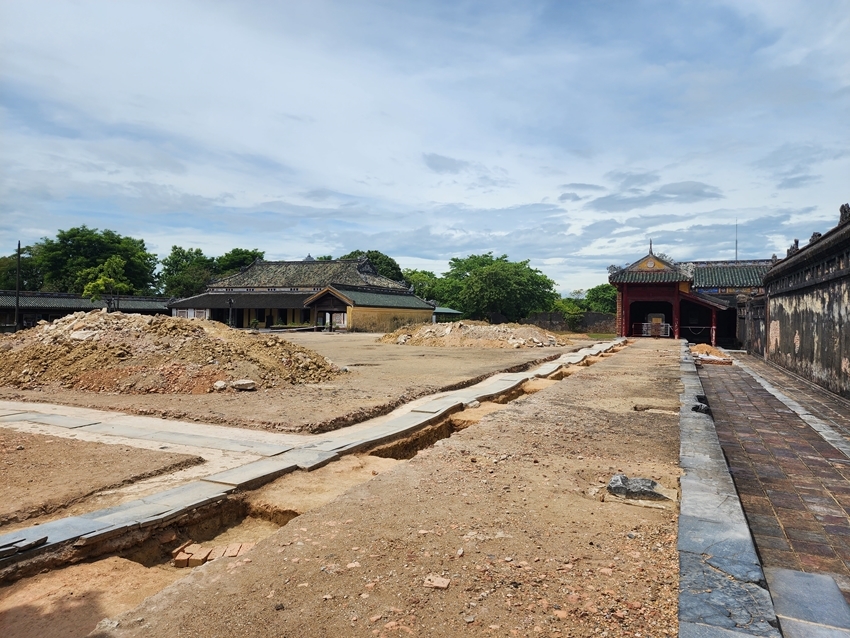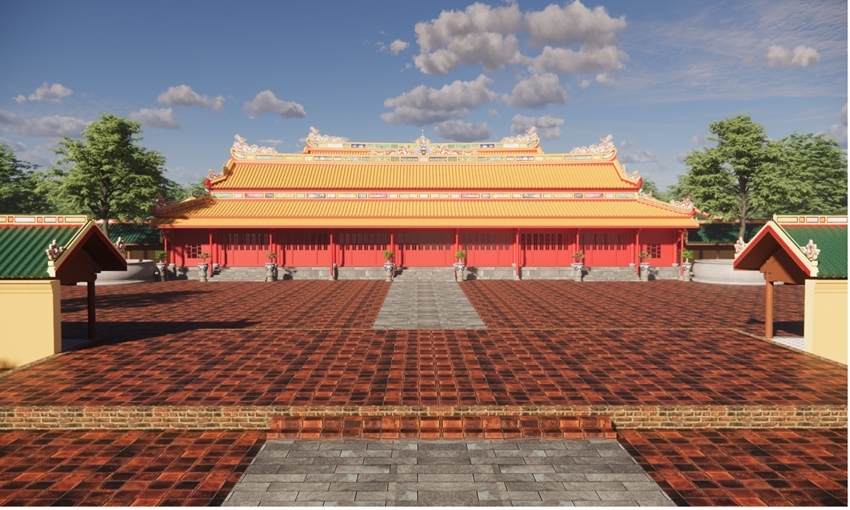 |
| Excavation and archaeological research on the foundation system of Can Chanh Palace in Hue Imperial City. |
The project for the restoration and preservation of Can Chanh Palace is currently under review by the Ministry of Culture, Sports, and Tourism. “The project is expected to commence in the fourth quarter of 2024 after the completion of necessary procedures,” stated Hoang Viet Trung, Director of HMCC.
Can Chanh Palace was built in 1804 during Emperor Gia Long’s reign, situated behind Thai Hoa Palace in Hue Imperial City. It served as a regular venue for royal meetings and administrative activities of the Nguyen Dynasty. However, the palace was completely destroyed in February 1947, leaving only its foundation. Historical records indicate that before being destroyed, the palace consists of a main hall with five compartments and two double-winged annexes, as well as a front hall with seven compartments and two single-winged annexes.
The upcoming reconstruction of Can Chanh Palace on its original foundation has garnered significant public interest, as it aims to gradually restore the ancient royal space of the Nguyen Dynasty within the Complex of Hue Monuments, a UNESCO World Cultural Heritage site.
In 2021, the Provincial People's Council approved the “Project for the restoration and preservation of Can Chanh Palace relic,” with a projected investment of around 200 billion VND from local government funds.
 |
| Perspective of the Can Chanh Palace restoration project |
According to many experts and researchers, the implementation of “Project for the restoration and preservation of Can Chanh Palace relic” is very urgent and needs to be done soon. For decades, both domestic and international experts, including those from Waseda University in Japan, have conducted extensive studies and compiled valuable data and images on the palace.
At the same time, some opinions suggest that the reconstruction should include geological surveys to design a sustainable foundation for the structure. The period selected for reconstruction should reflect the time of Emperor Khai Dinh, as Can Chanh Palace was a notable architectural masterpiece of the Nguyen Dynasty during his reign.
Currently, the restoration data has been presented in a 1:10 scale model of Can Chanh Palace, exhibited in Hue Imperial City.
To finalize the research phase, in August 2023, the HMCC collaborated with the National Museum of Vietnamese History to conduct archaeological excavations of the palace's foundation. Results indicated that the palace underwent 11 repairs of varying extents, with changes in foundation structure from the first construction to later restorations, due to the weak geological conditions, possibly because the area might have originally been a marshland.